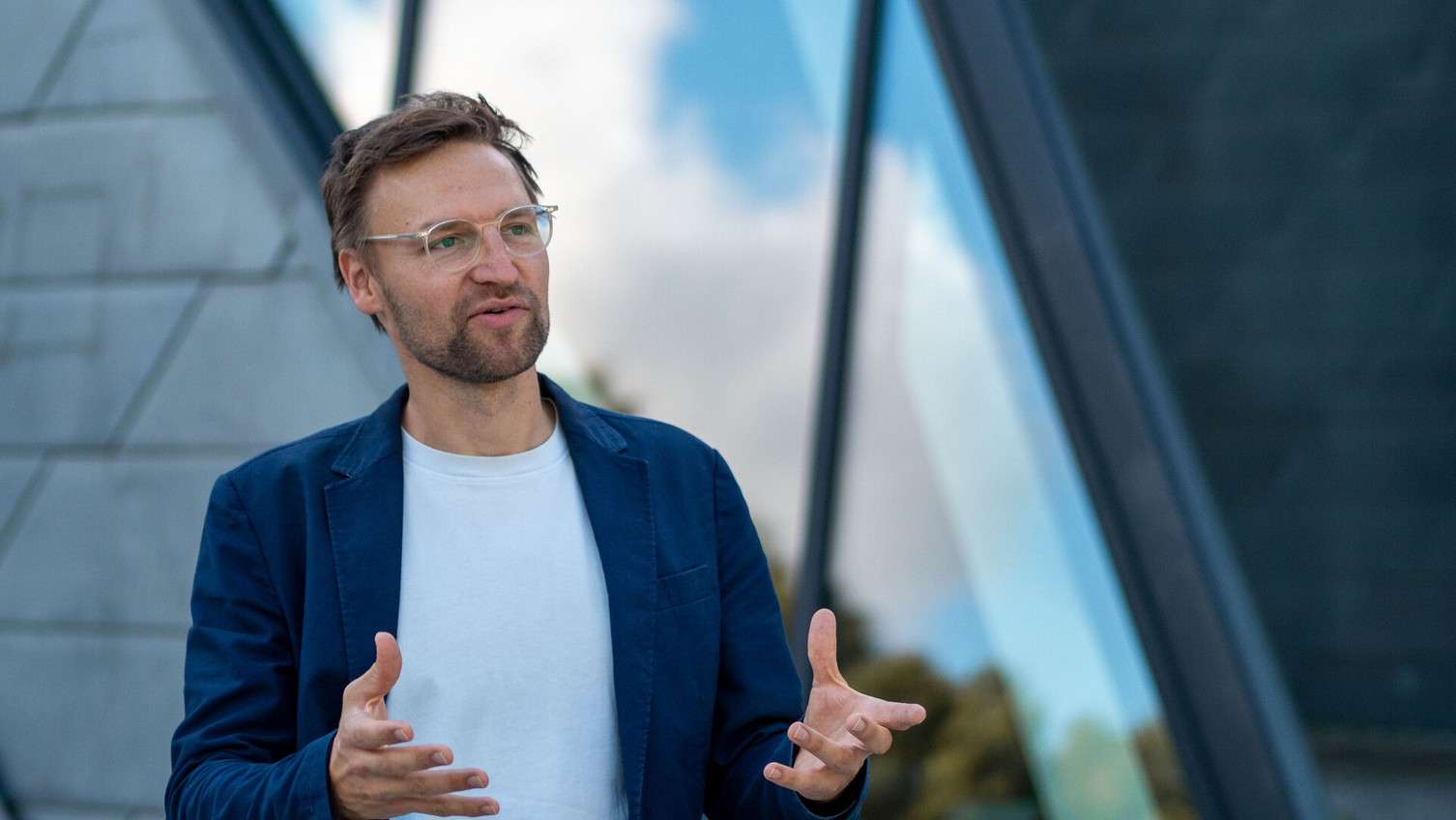Prof. Dr Harald Hantke: "Experiencing Democracy as a Problem-Solver"
2025-02-26 "In schools, society encounters itself in all its diversity," says Harald Hantke, Professor of Social Science Education and a member of the Centre for Democracy Research (ZDEMO) at Leuphana University. This is why teachers and students alike have manifold opportunities to experience democracy as a problem-solving mechanism. In this interview, he outlines approaches to a holistic implementation of democracy education, which he also presented this week as an impulse for school representatives at the community meeting of the Leuphana Innovation Community for School Development and Leadership in Wolfsburg.
 ©Leuphana / Ciara Charlotte Burgess
©Leuphana / Ciara Charlotte Burgess
Why is democracy education so important in schools?
We are not born as democrats; rather, we ideally become so through experience. Democracy, therefore, must be learned, which necessitates appropriate experiential spaces. There is no better place for this than the school, where society in all its diversity is encountered.
However, schools must actively embrace this responsibility. What does it mean to be a democrat? At its core, it is about being able to actively and responsibly shape society – in an inclusive and participatory manner. This expectation is also embedded within the educational mandate. Thus, democracy education is not an optional choice for schools or teachers but a fundamental obligation.
Based on this, how can students and teachers experience democracy in schools?
Ideally, in a holistic manner. This means that democracy education is not merely a matter for politics lessons. Rather, democracy is a so-called didactic cross-cutting task and thus also plays a role in subjects such as mathematics or language studies.
Moreover, democracy extends beyond the classroom into the broader school environment. To what extent is the school governed in an inclusive and participatory manner? Does the school maintain dynamic networks with political institutions, NGOs, or media organisations? What stance do teachers adopt, and how much freedom do they have, for instance, in choosing their professional development opportunities? In short, students and teachers can experience and actively engage with democracy on multiple levels if democracy and democracy education are taken seriously as integral components of school development, both in breadth and depth.
How can this be concretely implemented in everyday school life?
This question can only be addressed through illustrative examples. Democracy education can, for instance, be realised by teachers developing internal curricula based on overarching educational frameworks that facilitate cross-disciplinary democracy education – extending beyond the subject of politics. The broader educational mandate, after all, requires engagement with democracy across all educational processes in schools.
This raises important questions, such as how the promotion of democratic competencies can be integrated into subjects like mathematics or language studies. The very process of developing internal school curricula can itself be shaped democratically – or not. Ideally, schools will devise a curriculum that is democratically legitimised among teachers, ensuring that democracy education permeates the entire educational spectrum of the institution.
A recent survey by the environmental organisation Greenpeace found that only 22 per cent of young people aged 16 to 25 perceive democracy as an effective problem-solving mechanism in economic, political, and social contexts. What needs to change for this figure to rise in the future?
I can imagine that young people hold this perception because they have not yet experienced democracy as an efficient problem-solving mechanism themselves. If they observe that problems are resolved more quickly when a single individual makes autocratic decisions, and that 'faster' is consequently deemed 'better,' then democracy, or the democratic process, inevitably struggles.
At this point, I would like to emphasise the value of politics education. When considering democracy as a problem-solving mechanism, students can, for instance, learn to differentiate between output and outcome in democratic decision-making processes. In terms of output – that is, the number of immediate decisions made – democracies indeed have a disadvantage compared to autocracies. However, regarding outcome – that is, the societal impact of decisions – the advantage lies with democracies. The broader legitimacy enjoyed by democratic outcomes within society can serve to further strengthen them.
One approach to ensuring that more young people perceive democracy as an effective problem-solving mechanism is to quantitatively and qualitatively enhance political education. Quantitatively, this entails increasing the number of teaching hours allocated to politics as a subject. Qualitatively, it requires that politics is taught by properly qualified teachers rather than, as is too often the case, by educators from unrelated disciplines. Ultimately, however, I wish to stress that the approach I have outlined here is but one component of a much broader solution.
Thank you for the interview!
